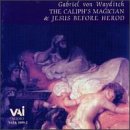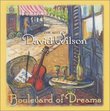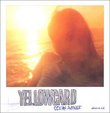| All Artists: Gabriel von Wayditch, Andras Korodi, Peter Eros, Orchestra of the Budapest Opera, San Diego Symphony Orchestra, Andras Nagy-Soljom, Arpad Kishegyi, Christopher Lindbloom, Csaba Otvos, Csilla Ötvös, Eileen Moss, Istvan Rozsos, Julia Paszthy, Michael Best, Pauline Tweed, Sandor Palcso, Stephen A. Scot-Shepherd, Vincenzo Russo, Zsolt Bende Title: Gabriel von Wayditch: The Caliph's Magician: Suh and Sah; Jesus Before Herod Members Wishing: 0 Total Copies: 0 Label: Video Artists Int'l Release Date: 12/5/1995 Genres: Pop, Classical Styles: Opera & Classical Vocal, Historical Periods, Modern, 20th, & 21st Century Number of Discs: 2 SwapaCD Credits: 2 UPC: 089948109525 |
Search - Gabriel von Wayditch, Andras Korodi, Peter Eros :: Gabriel von Wayditch: The Caliph's Magician: Suh and Sah; Jesus Before Herod
 | Gabriel von Wayditch, Andras Korodi, Peter Eros Gabriel von Wayditch: The Caliph's Magician: Suh and Sah; Jesus Before Herod Genres: Pop, Classical
|
Larger Image |
CD DetailsSimilarly Requested CDs
|
CD ReviewsA curiosity indeed G.D. | Norway | 07/10/2009 (3 out of 5 stars) "Gabriel von Wayditch (1888-1969) didn't exactly do his outmost to make a career distinguished by fame and fortune for himself. He emigrated from Hungary to the US in 1911, but continued to set (his own) librettos in Hungarian for the rest of his life. All his operas are on mystical, usually rather grotesque themes, and they require enormous orchestral and choral forces and theatrical resources to be performed. And they are nothing if not ambitious - "The Heretics", for instance, lasts a good eight and a half hours. When choosing to record some of his music, it is hardly a surprise that one decided to go for a couple of earlier, shorter works - even though they are apparently not entirely representative. And when it turns out that Wayditch was hardly in the league of, say, Richard Strauss or Schreker, the prospects for a revival of his mature works are bleak indeed. The Caliph's Magician contains little by way of dramatic action for an opera of one and a half hour (a magician conjuring up an unpleasant vision which turns out to be a commentary on the watching caliph's rule), but is set in a lush, overblown late-romantic language somewhat reminiscent of Strauss's Salome but somewhat bland and indistinctive - there is, to be honest, little to notice or remember about this one even if it ambles along decently and predictably enough. Jesus before Herod is more condensed, but also more interesting musically. Again, the music bears some resemblances to the music of Richard Strauss, but Wayditch apparently added some (for the time) modernistic but very self-conscious touches - they are poorly integrated into the material and sounds more like afterthought added on afterwards to spirit up a rather conventional score. Still, the work is fine enough to hold one's attention, and Wayditch really manages to build up the dramatic tension (without much actually happening) with some finely shaped climaxes and some strong themes - even though the end result musically reminds me more of the big 50s and 60s Hollywood epics than the big operas of the time. This is, in short, a work very much worth hearing for those interested in the exotic and spectacular music of the period. Performances are generally acceptable, but not much more. Scruffy strings, somewhat loud and off-tune brass marks the seemingly underpowered orchestral contributions, and the vocal contributions are generally undistinguished (sounding more underrehearsed than actually technically deficient) - although at least regarding the orchestra, the shortcomings might be just as much due to the sound quality, which isn't exactly anything to write home about - boomy and cavernous and generally poorly balanced; especially with respect to the ever problematic balance between soloists and orchestra. Still, I am glad to have heard this music and will give it a cautious recommendation for the curious and adventuresome." Great preservation of a great work. Edward H Peterlin | Santa Barbara, CA United States | 06/13/2004 (5 out of 5 stars) "This CD is ostensibly the identical recording to the old Musical Heritage Society vinyl recording of this work, the only one available that I could ever find. After becoming infatuated with Korngold, Delius, and other such lush music of the ever changing signature, I stumbled upon the old MHS vinyl of The Caliph's Magician and from the first moments was blown away. Wayditch is definitely an oft-forgotten gem of an era of classical music that has seen little preservation.I only hope that in the future I will have more recordings like this. It is a shame that only two of his fourteen operas readily available on recordings. I can only dream of what else the hours of unexplored opera of this composer can provide."
|

 Track Listings (8) - Disc #1
Track Listings (8) - Disc #1




